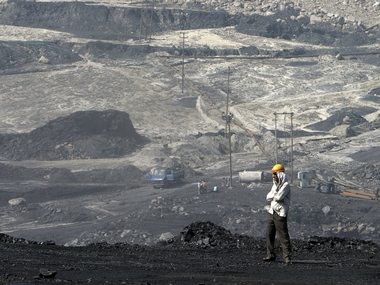It’s strange when you think about it: Coal India, one of the largest companies in India, did not have an official chairman for more than a year. Now, as the company goes through one of its toughest patches, the government has finally woken up to to the need of installing a full-time, official boss for the company and appointed S Narsing Rao, chairman of Singareni Collieries, as chairman. Rao is scheduled to take over in two weeks.
The chairman designate seems eager to fit in. Even before taking over the position officially, he has begun clarifying the government’s stand on various issues. According to a_ Business Standard_report, he said that the government was well within its rights to ask CIL to supply a certain amount of coal and that it is not a “demon-like situation.” He also said it was crucial for the company to ramp up production.
[caption id=“attachment_268291” align=“alignleft” width=“380” caption=“Reuters”]  [/caption]
He also suggested that if the company could not meet 80 percent of the agreed supplies as required under the long-term agreements signed with power producers, it would resort to importing coal.
Nice thought, but importing coal will be traumatic for Coal India’ s bottomline. There is already a penalty on Coal India if it fails to supply 80 percent of the agreed output to power producers; importing to make up the shortfall will only make its finances worse since imports are costlier.
There is some talk that the government might give some relief to Coal India on the subject of penalties. Rao said he would also speak to the environmental ministry to speed up clearances to allow the company to increase output.
Impact Shorts
More ShortsIn another development, the government said that it is not possible to run Coal India the way the market wants. The shareholders already knew that CIL was committed to a “ socialist cause” and the company will be run accordingly, it said.That will disappointChildren’s Investment Fund, Coal India’s largest foreign share holder, which recently initiated legal action against the government to protect its investment in Coal India, which, it said, was being hampered in its profitability because of government interference.


)

)
)
)
)
)
)
)
)



